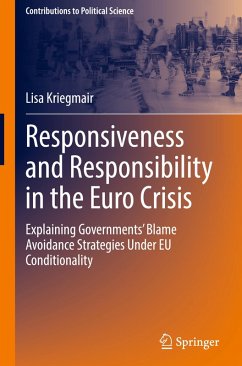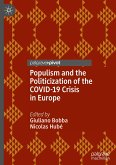Conditionality has become a popular instrument for achieving policy change in the European Union (EU). EU conditionality in the Euro crisis epitomises the responsiveness-responsibility dilemma that comes with increasing supranational influence on national policymaking: governments find it increasingly difficult to responsively address the needs of their citizens and simultaneously fulfil their obligations vis-à-vis supranational institutions. Blame avoidance strategies are a way to mitigate this problem, as they help governments shape public perceptions about who is to be held accountable for unpopular policies. During the Euro crisis, despite it being an easy target, governments facing EU conditionality did not indiscriminately shift blame to the EU. Instead, they drew on a variety of blame avoidance strategies. This book aims to shed light on this observed variation in governments' strategy choices during the Euro crisis. To do so, it investigates the constraints that EU conditionality imposes on governments' use of blame avoidance strategies and how governments chose specific strategies from the remaining blame avoidance toolkit.
Bitte wählen Sie Ihr Anliegen aus.
Rechnungen
Retourenschein anfordern
Bestellstatus
Storno








